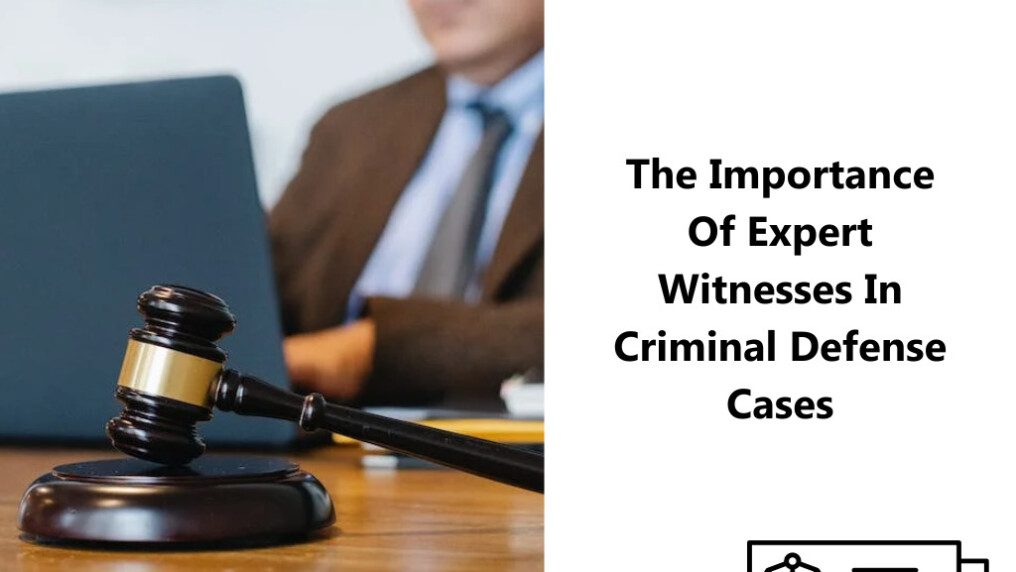
Expert witnesses play a crucial role in criminal defense cases by lending credibility to the defense, challenging prosecution evidence, supporting defense theories, educating the jury, and impacting sentencing. Their specialized knowledge helps the court understand complex technical matters beyond its expertise. This article explores the importance of expert witnesses in criminal trials.
The Role Of Expert Witnesses In Providing Credibility
Expert witnesses enhance the credibility of criminal defenses through their specialized education, training, and experience. Fort Worth criminal defense lawyers may employ expert witnesses to explain technical knowledge to the jury, which can prove their clients’ innocence.
As professionals with specialized technical knowledge related to the case, they can offer authoritative counter perspectives to the prosecution’s interpretations and conclusions.
For example, a medical expert witness can examine the victim’s injuries and medical history to provide alternative diagnoses that contradict the findings of the prosecution’s medical examiner. They may provide evidence that the injuries occurred due to an underlying health condition rather than foul play. These credible alternative explanations make the defense’s version of events seem more plausible.
Similarly, an expert psychologist can analyze a defendant’s mental health and behavior to raise doubts about prosecution claims related to motivations, decision-making capacity, or competency to stand trial. Their professional perspectives humanize the defendant and make the defense’s side more sympathetic.
These expert analyses significantly enhance the credibility and reasonableness of the defense in the eyes of the jury. After all, they come from leading professionals rather than the defendants themselves or their lawyers, who may seem inherently biased. The prosecution then faces a challenging battle against the combined credibility of the defense team and their assembled experts.
Challenging The Prosecution’s Evidence
One of the primary duties of expert witnesses is to rigorously challenge the accuracy and interpretation of the prosecution’s evidence. Their scientific and technical prowess allows unique reanalysis or reinterpretation of existing trial evidence.
For instance, a DNA analysis expert can double-check the prosecution’s DNA data first hand rather than simply questioning the prosecution’s expert. They can run independent tests on DNA samples related to the case to critique the strength of DNA associations claimed by the prosecution’s experts. Such hands-on scientific double-checking either verifies or dismantles the biological and genetic pillars underlying the prosecution’s arguments.
Likewise, a cyber forensics expert can forensically analyze the authenticity of digital evidence rather than just speculating about tampering. By digging into metadata, timestamps, and digital signatures on files presented by the prosecution, they can potentially expose manipulations commonly used to fabricate incriminating digital evidence. Definitive technical evidence showing that critical documents or photos were altered after their creation would significantly impact the perceived integrity of the prosecution’s case.
Essentially, expert witnesses can use their specialized testing and analysis of the prosecution’s physical or digital evidence to directly assess its scientific validity. These critiques focused on the evidence prevent them from appearing as mere speculative contrarian arguments to a jury. Solid evidence demonstrating that the facts don’t quite align with the claims in the prosecution’s narrative often brings about the momentum shift desperately needed by struggling criminal defense teams.

Supporting The Defense’s Theory
In addition to reactive roles, expert witnesses also play an active role in building the defense’s case. By presenting technical and scientific evidence aligned with the defense’s theory, they bolster the overall credibility and plausibility of the defense’s side of the story.
For instance, a cybersecurity expert witness can present digital forensic evidence indicating that a defendant’s computer or online accounts were hacked. Such technical evidence of tampering makes any incriminating online activity seem planted, thereby lending credence to the defense’s claims of a setup or false charges.
Read Also: How Social Media Has Changed Criminal Investigations
Educating The Jury
Another vital role of expert witnesses is educating the layperson jury about complex domain-specific concepts beyond common knowledge. In trials related to specialized fields like medicine, technology, and science, such education is crucial for the jury to understand niche evidence and make informed judgments.
By offering easily understandable explanations of technical concepts, processes, and conclusions, an expert witness provides juries with the knowledge foundation necessary to interpret the evidence correctly. For instance, a medical expert witness can clarify intricate terminology and diagnostics for a jury before interpreting medical reports and injuries central to a trial.
Impact On Sentencing
Expert witnesses play a pivotal role not only in providing specialized knowledge during legal proceedings but also in influencing sentencing recommendations. Leveraging their expertise, these witnesses can offer insightful perspectives on mitigating circumstances, thereby advocating for sentences that align more closely with a defendant’s circumstances.
Consider a scenario where a psychologist is called an expert witness. This professional can provide a nuanced understanding of how a defendant’s mental illness or a traumatic upbringing might have significantly contributed to the commission of the crime. By delving into the psychological factors at play, these expert insights humanize the defendant, offering a more comprehensive view of their motivations and actions.
The value of these humanizing insights becomes evident in their ability to influence sentencing decisions. Instead of solely focusing on punitive measures or deterrence, the expert witness can advocate for a sentencing approach that prioritizes rehabilitation. This shift emphasizes addressing the underlying issues that may have contributed to the criminal behavior, acknowledging the potential for personal growth and rehabilitation.
Frequently Asked Questions (FAQs)
What qualifications does an expert witness need to have?
Expert witnesses typically need to have specialized higher education, training, and work experience related to a criminal trial to qualify as experts. Relevant niche certifications, memberships in professional associations, and a strong reputation among peers further strengthen expert credentials.
How can expert witnesses impact the outcome of a criminal defense case?
One study found that 61 out of 67 appellate cases upheld convictions despite defense challenges to prosecution expert witnesses, indicating strong expert witness influence on case outcomes3. Credible expert perspectives validating defense theories combined with effective expert critiques of prosecution evidence can powerfully bolster reasonable doubt.
Can expert witness testimony be challenged?
While expert witness testimony carries significant weight, it is still not absolute or binding. Judges can disregard expert evidence if it does not align with case circumstances or seems theoretically unsound. Through cross-examination and presentation of contradicting expert perspectives, expert witness credibility can still be challenged.
Final Takeaway
Expert witnesses empower criminal defendants to challenge prosecution teams with far greater resources and the home-field advantage within the legal system. By lending credibility to the defense, critically evaluating the prosecution’s evidence, technically bolstering defense theories, educating juries, and influencing sentencing recommendations, expert witnesses can level the playing field for defendants and lead to fairer outcomes.
The niche expertise of a witness can make all the difference between condemnation and vindication in a criminal trial.
Read Also:




























